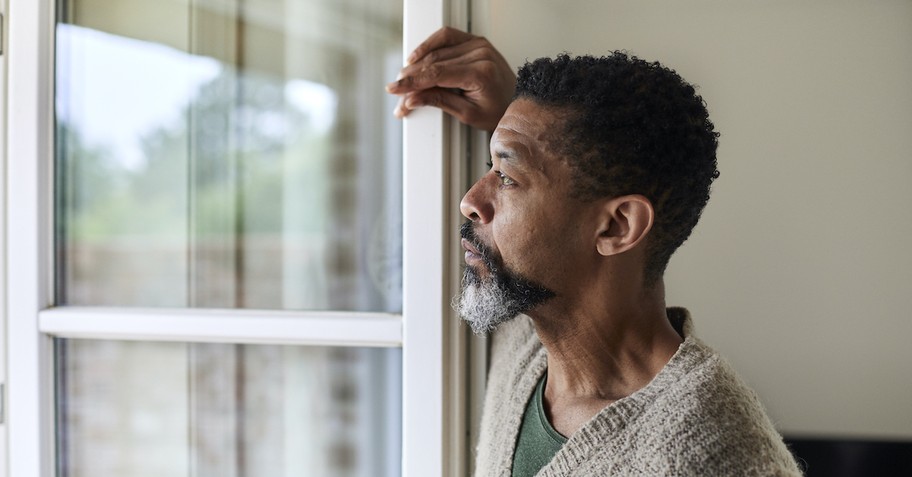7 Healthy Ways Christians Can Deal with Grief

When you've been through a painful loss, and a friend asks, "How are you?” how do you respond? Are you quick to brush it off, or do tears come easily? Maybe emotions surface, but you do whatever you can to keep them at bay. Responses to loss vary by person, day, and circumstance as part of the normal process of grief. Some losses feel more significant than others even when it doesn't make sense, while others are excruciating to face. Do you ever fear you’ll break down and never get up again?
Regardless of varying responses, we hold in common the need to grieve to heal and grow.
I've wept the loss of loved ones who moved or passed away. I’ve sobbed from losses within relationships when I realized I couldn’t have what I wanted and needed. Emotional pain has penetrated deeply, and I’ve felt like I’d never make it through. At other times, grief didn’t seem to have a source. It felt like a steady thrum, an unmovable weight deep in my spirit. When friends got curious about my experience, I felt less alone. The weight of grief felt lighter.
Loss comes in many forms. We experience loss through the death of loved ones and when relationships, jobs, or life roles change. Also, when someone we’ve hoped would change never does. Parents feel a sense of loss when children grow up and make choices different from our values. We even experience loss when we make the changes we want because what's ahead is not what we've had before.
Grief is a normal and appropriate response to the losses we experience in this world.
Photo credit: ©GettyImages/fizkes

What Is Grief?
Grief is our body's way of responding to losing something we valued or to what was familiar. We experience emotional pain due to the change from what we had (or thought we had) to what we don’t have. There is a sense of something missing, whether what’s missing is good or bad. Feelings of grief can be overwhelming, as sadness permeates all we think, say, and do. Grief reveals itself through tears, anger, storytelling and reminiscence, confusion, and a flood of questions as we sort through how life has changed, and we don't want to believe our new reality is what’s true.
What Does the Bible Say about Grieving?
In the book of Psalms, David repeatedly grieved. He poured out emotional pain to God when he felt distant from God, when his son died, and when Saul chased him, and David lost a sense of safety. Job faced unimaginable losses compounded on each other. Jeremiah is called the wailing prophet as he lamented over Israel. Jesus wept (John 11:35) when he felt moved by the loss of Lazarus.
Throughout the Bible, we see grief appear as a common experience. One without shame, guilt, or condemnation. Grief becomes a pathway to deep feeling and reveals vulnerable needs. Perhaps you’ve felt closer to God in your grief, as I have.
Psalms 34:18 “The Lord is close to the brokenhearted and saves those who are crushed in spirit.”
We are to offer comfort to one another as an outpouring of the comfort we receive from God.
2 Corinthians 1:3-4 “Praise be to the God and Father of our Lord Jesus Christ, the Father of compassion and the God of all comfort, who comforts us in all our troubles so that we can comfort those in any trouble with the comfort we receive from God.”
Some of us deny emotions (like sadness and anger) because they don’t feel OK to experience as a Christian. Yet, how can we receive God’s loving comfort if we deny we need it? Grief in scripture reveals our humanity designed after God’s image. God is an emotional and relational God who is acquainted with grief (Isaiah 53:3, Mark 3:5).
God is the giver of emotions and he designed healthy ways to deal with grief.
Photo credit: ©GettyImages/ Blasius Erlinger
7 Healthy Ways Christians Should Deal with Grief

1. Allow Emotions to Surface
Have you ever sensed the need to cry, get angry, or ask questions? Please don’t ignore what’s surfacing. Our emotions signal something we need. Emotions drive us to action, and the action we need to take may be feeling as part of the process of letting go.
There are times when the depth of emotions that accompany grief need to be held off temporarily because it is not safe or wise. However, we can retreat to spaces where emotions can be felt. If you’re driving or in a crowded room, it may be helpful to pull over or find a space where emotions can surface.
When you sense emotions surfacing, allow them. The emotions don’t need to be understood, but they need to be processed.
2. Feel the Feelings
Does the idea of feeling sadness or anger seem overwhelming? Scary? Wrong? Unnecessary? Many of us naturally avoid feeling emotions because of faulty beliefs, past experiences, or because it seems like once we feel, the emotion will consume us. My counseling supervisor recently said something to me that I think is helpful here. "Emotions have a beginning and an end." When we feel the feelings, we will not always feel that way.
NOTE: I'm not referring to chronic struggles with depression, which is more than grief.
Some grief emotions aren't that big. It is easy to deny them space in our lives, especially when doing so seems unimportant or silly. Even so, when those emotions surface it is important to pay attention. Take a minute or two to feel and release them.
Photo credit: ©GettyImages/ Oliver Rossi

3. Grieve Alone and with Others
Grieving alone offers us space to feel intense emotion without worrying about others. Solitary grieving may be less about being alone, and more about getting honest with ourselves. Also, when we take time to feel grief without other people around, we can reach out to God in prayer or journaling. We make space for the quiet we need to connect with God and hear from him. As helpful as grieving alone can be, we are designed by a relational God and need to grieve with others.
Romans 12:15 “Rejoice with those who rejoice; mourn with those who mourn.”
When we grieve with another person, we receive from them something Dr. John Townsend calls “relational nutrients.” What we receive through others is something we cannot give or get within ourselves. There are neurons in our brain that respond to other people's facial expressions and experiences. Through caring experiences with others, our brains are changed, and we can find our way to healthy living in new realities.
4. Acknowledge the Good and the Bad
A common, unhealthy response to difficult circumstances and emotions is seeing (or remembering) things as all good or bad. For example, when a loved one dies, we may remember all the good things about them without acknowledging the truth about the bad we also experienced. Maybe they did things that hurt or harmed us, but when the person is gone, we choose to ignore those truths and the result of the harm.
We need to address the reality of what was bad while holding space for the good. Likewise, we need to acknowledge good even when it seems like everything was bad. If grief involves situations filled with pain, the good we reflect may have to do with what we can be grateful for. Good may include our perseverance, moments of kindness, or the fruit of growth we experience because of troubling situations. Always, good includes God anchoring goodness and faithfulness no matter what we’re going through.
Good and bad coincide. Likewise, grief and hope often exist together, which we see proclaimed multiple times in scripture. For example, when David laments in the Psalms, we often see him closing the lament with a choice to hope in God (Psalms 31, 39, 40, 42). This declaration is like an anchor for the soul to know that there is good and bad.
Photo credit: ©GettyImages/Jasmin Merdan

5. Accept the Reality of What Is (or Was) and Grieve What Is Not and May Never Be
This point may sound like a mouthful, but it is essential. We need to accept the reality of what is true now or was true before a loss is experienced in our circumstances and relationships. Acceptance of reality helps us grieve losses well. Perhaps, we feel sad, angry, or confused because our hopes, dreams, desires, and expectation have not been fulfilled and may never be, particularly with another person. When we continue to put our hope in what we want to be true, we pressure ourselves and others to keep us from experiencing the good God wants for us.
The commonly recited Serenity Prayer reminds us to accept what we cannot change. As challenging as this is, it is an essential component to grieving well.
Choosing acceptance includes facing the reality of who someone/something was or will not be, at least for now. Acceptance includes seeing the truth about good and bad and grieving what you cannot have. Like when an adult grieves the loss of a parent who couldn't or wouldn't provide loving care. Healthy grief acknowledges the loss of love, kindness, or desired change that never came.
6. Acknowledge Losses That Seem Invalid
One especially painful type of grief is losing a relationship with someone still alive. This kind of loss comes through a divorce, through physical and mental health deteriorations, and through relationships that end because of another person’s choice or the need to set healthy limits.
The losses we feel from relationships that die, though the other person is still alive, can seem invalid. Perhaps you’ve been told you should just be grateful. Remember, we can acknowledge what was good, but we must also acknowledge the truth of the loss we feel if we want to grieve well.
Another seemingly invalid loss happens when we make life choices we’re glad about. By making these choices, such as taking a new job or doing courageous things, we lose what was familiar. Losses related to personal growth are still losses.
These are valid reasons for experiencing grief. Acknowledge the grief you feel, even as you smile for the future ahead of you.
Photo credit: ©GettyImages/ Maskot

7. Allow Time and Space for Grief
There is no set timetable for grief. If someone says you’ve been grieving too long, they may speak from their own anxiety around feeling loss. Others may put expectations on us about how long grief should take. However, if someone says we need to move on, or we feel the need to be done with grief, it is time to get curious. Grief may have moved into depression, or we may have refused to allow grief the space it needs.
It takes time to process emotions and experience new things. We cannot rush the process by ignoring what we need, like facing our feelings and taking actions that align with the kind of person we want to be in our new reality.
Why Is it Important to Face Grief?
Unattended grief causes a ripple effect of repercussions. Internally, the body takes on added stress that affects our immune systems and energy levels. Externally, our behavior includes heightened emotional responses that have little to nothing to do with another person or our circumstance and everything to do with the underlying, undealt with grief. We become wounded people walking, potentially wounding others as we run away from the grief we need to process.
As Christians, we have the hope of God at work in and through us, no matter the circumstance. He designed healthy ways to deal with grief, and the fruit includes experiencing abundant life as God designed (John 10:10). May this be your experience as you grieve.
Photo credit: ©GettyImages/ Erica Shires
Originally published March 01, 2022.









